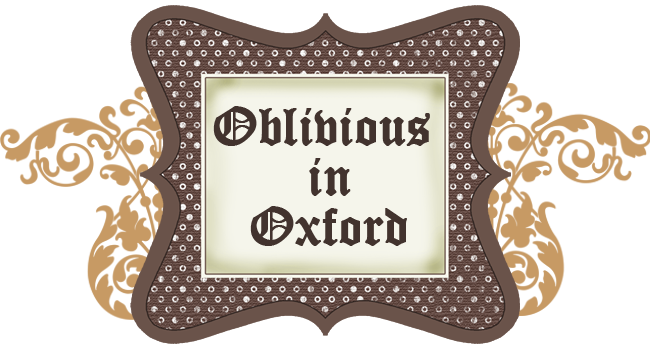There are so many differences between my previous educational experiences and Oxford that I could not begin to explain them all in a single post. However, I will try to explain a couple of them.
Terms
Unlike US schools with two semesters per year, Oxford has three "terms" per year: Michaelmas Term runs from October to December, Hilary Term runs from January to March, and Trinity Term runs from May to June. Most Oxford students take the same classes all three terms and have a single exam at the end of Trinity Term. However, the Masters in Law and Finance degree (MLF) is set up such that all students take two law "electives" and two "core" MLF classes over the course of the year.
We were able to choose from a variety of law electives, and each elective is taken with other post-graduate law students (BCL and MJur students). Each student's two law electives run all three terms, and there is one exam for each elective at the end of Trinity Term. My law electives are (1) Transnational Commercial Law and (2) Principles of Financial Regulation.
The "core" MLF courses are (1) Finance I (Michaelmas Term) which transitions into Finance II (Hilary and Trinity Terms) and (2) First Principles of Financial Economics (Michaelmas Term) which transitions into Law and Economics of Corporate Transactions (Hilary and Trinity Terms). The core MLF courses are tested at the end of each term, and the thirty MLF students are the only students in these classes.
Tutorial system
Unlike the lectures typically given in US schools, Oxford classes are taught through a combination of lectures, tutorials, and seminars (known as the "tutorial system" which is unique to Oxford and Cambridge). In tutorials and seminars, students are taught by faculty fellows in groups of approximately three to five students. Students typically prepare an essay for each of these, and they receive direct feedback on their essays in a small discussion setting. Tutorials are thought to be more academically challenging and rigorous than lectures, because during each session students are expected to orally communicate, defend, analyze, and critique the ideas of others as well as their own in conversations with the faculty and the other students. I cannot speak to the full "Oxford experience" yet, since I do not have any tutorials during this term. I only have lectures in Michaelmas, but my tutorials and seminars will start in Hilary Term (after Christmas break).
However, the lectures are nothing short of fascinating. There is intense reading (mainly articles) to prepare for each class. The teaching style is not the Socratic method common to US law schools, but it is very theoretical. The lectures present the theory and identify the important questions, but it is up to the students to make the effort to get the practical aspects through independent study. It is not uncommon for other members of the faculty to attend the lectures, and for them to directly question and/or criticize the concepts presented in class. The lectures are also slanted towards the lecturers' own research and personal views. Each lecture is three hours long, so we only have one lecture per class each week. Although this may sound like an easy load, I can assure you that it is not! The reading and independent study is much more part of the education than at US schools.
Reading
There are not any "required" readings (or textbooks) for any class. The lecturer typically gives a list of "suggested" readings, but this is by no means a requirement or a limitation. Although this can be frustrating and seem unstructured, it is also refreshing for a class not to be guided by a single casebook or textbook. As opposed to my experience with US university libraries (where the library is mainly a place for students to socialize and access a computer), the Oxford libraries are constantly packed with students reading from multiple different sources for each class (which cannot be taken out of the library).
Students
The most enjoyable part of the experience is definitely the other students. I have never met so many interesting and diverse people. For example, I am part of a study group composed of guys from Ireland, Australia, Belgium, Kenya, and Norway. The MLF students are about evenly divided between those with legal experience and those directly out of law school (I am the second or third most experienced. lawyer of the group). I am always surprised that everybody automatically assumes that I practiced at a huge law firm. There are only three other lawyers from the US in the program, and all of them will probably end up at huge New York law firms. They always look at me strangely when I tell them I practiced with grand total of nine other lawyers (but I always assure them that the boys from Pope Hardwicke can practice law with the best of them).
Teaching Lawyers Business and Math
I may have mentioned this before, but this is the first year that the MLF degree has been offered. I do not know of any program like it that combines business and law. It is exciting to be a part of the "inaugural class" and I can tell that Oxford is putting a major effort into integrating its outstanding Law School and Said Business School faculties through the MLF program. It has been interesting to see the lecturers adapt their styles to overcome the struggle of teaching advanced mathematical and concepts to a group of lawyers. I am thankful everyday for my Agricultural Engineering degree from Texas A&M!
 |
| The MLF crew all dressed up |
 |
| Of course, it is not all books and studying |



















































